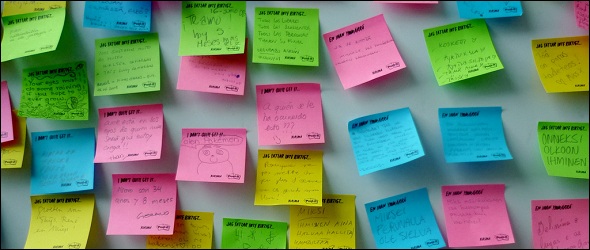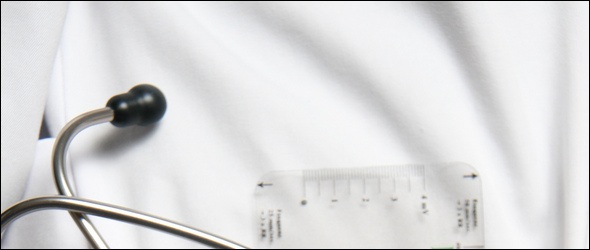…since I last wrote here?
It honestly hasn’t felt like it. I’ll be honest, it’s not like I completely forgot about the blog. Well, I do sort of forget about it during the week with all the medical school stuff going on (it really feels like a full time job, and that actually sort of doesn’t sit well with me to be honest). I do usually remember it on Fridays, and try to remind myself to write an end of the week reflection at the very least, but then I just make up an excuse or forget. Sometimes I’m just so ridiculously lazy. To make up for that, I hope to write a super long post today and be particularly candid about my thoughts (within reason obviously).
Taking Control of my Education
Anyways, the gist of it is that unless I really want to prioritize my ego, marks don’t really matter (as long as I pass). So I’ve come to the realization that, if my marks don’t matter, why let that control my life (and specifically, my overall education)? I feel like I’d rather expend my energy doing things more productive or fun than studying more than I really need to.
So in terms of my medical education, for me that means spending more time exploring various specialties and trying to get a better grasp on what I’d like to be doing in the long term. While things could of course change, at this point in time, I’m not interested in any of the surgical specialties. I’m just not interested in working with my hands for hours on end, and the lifestyle (i.e. longer hours) just don’t suited the type of life I want. So that leaves medicine (this might be confusing, but apparently, medicine just often means anything non-surgical). Right now internal medicine and neurology are at the top of my interest list, but I’m leaning back towards neurology (after sort of writing it off earlier this semester for reasons I don’t really want to mention now).
I’ve found some neurologists whose work really interests me, so I’m going to try and connect with them in the next week, maybe set up some observerships and possibly get involved in some side research work so I feel like I’m actually being productive. An interest in neurology (and its associated disorders and illnesses) is what got me into medicine in the first place, and if I’m being completely honest, nothing else has excited my yet. I figure this is the right place to start.
Wait, so Am I a Leader or Not?
As part of our U of T Medical School curriculum, we tackle more than areas like anatomy, physiology, histology, embryology, etc. I have already mentioned that we look at Determinants of Community Health and the Arts and Science of Clinical Medicine.
What I haven’t mentioned yet is that we also explore other perhaps less obvious aspects of medicine, and one that we will visit several times a year over the next four years is the theme of management. As part of exploring the concept of physicians as managers, we spent one afternoon a few weeks ago learning about different leadership styles. A particularly interesting concept came up recently that I think would be good to share, especially since I think growing up, students have such a huge misconception about it.
One question that was brought up (and one that I think many individuals think about) goes something like:
We say being leaders is a good thing, but if everyone in a group is a leader, won’t the group be dysfunctional? Don’t we need some people to be followers?
I think the first thing that needs to be addressed is the concept of being a leader. Especially in today’s school and work settings, we are bombarded with the idea that we need to become leaders. Leaders are important of course, and we often praise leaders in the media. However, it’s important to keep in mind that leaders are individuals who lead in a specific setting – that is, leaders exist only in the context of the activity they are leading.
For example, when we say Barack Obama is a leader, what we’re really saying is that he is the “leader” of the United States of America. Put him in another context, say the local pick up basketball team he plays with (I’m just making this up as an example), and he may certainly not be a leader. Of course his leadership skills are always there should he need to rely on them, but it would be wrong to say he is a leader in the absolute sense – because he isn’t.
What we’re really trying to do in today’s world is cultivate leadership skills in young people, so that they may be leaders of tomorrow, but in a variety of contexts and not necessarily in everything that they do. So while you may end up with a group full of individuals with strong leadership skills, not all of them will end up being the identified leader of the group. Most commonly, the individual with the skill set and background most relevant to the group will end up being the leader. For instance, if a group regarding promoting science to young people formed, I am more likely to be the leader, whereas if a golf club was forming, I most definitely would not try to be the leader because I would just be wasting everyone’s time.
Furthermore, it’s important to realize that an important aspect of being a good leader is recognizing strengths/weaknesses of your teammates, as well as knowing when to lead and when to follow. It’s a mistake to think a good leader is always in the leadership role. A good leader recognizes achieving the goals of the group is most important, and that can sometimes be best done when someone else is in charge.
Contrary to intuition, dysfunctionality within a group full of strong minded individuals is actually a sign of poor leadership skills because good leaders would have come to a peaceful consensus on who is most adept to lead the group. Anyways I think that’s sort of a cool concept that we tend to misunderstand, and I hope some people find that helpful, especially if you’re struggling within a group setting.
Real Patient Contact
As I mentioned before, I had been practicing interview sills on standardized patients (i.e. actors). Two weeks ago, I began practicing my interview skills on actual patients. Without a doubt, real patients are more difficult for a variety of reasons (one obvious one being that you can’t “time out” and ask your tutor for advice!). Whereas standardized patients will answer your questions directly, real patients can sometimes be all over the place, and it’s up to you to try and keep the interview focused. That being said, there is something rewarding about working with real patients, I guess for the very reason that it’s actually real.
I also finally got my stethoscope, blood pressure cuffs, and other pieces of equipment. I think we’re going to start learning to use those soon, and I think that starts with real patients this Friday, so that should be cool.
Coming Up…
I have my first Anatomy exam coming up (bellringers…), so I think my writing here will be sporadic again (but hopefully not, we’ll see).
Sorry to everyone who wrote a comment or sent me an email in the past month – I am way behind on those things, I apologize. I will try to get back to everyone soon, but I really don’t know.
Hope everyone is doing well!




